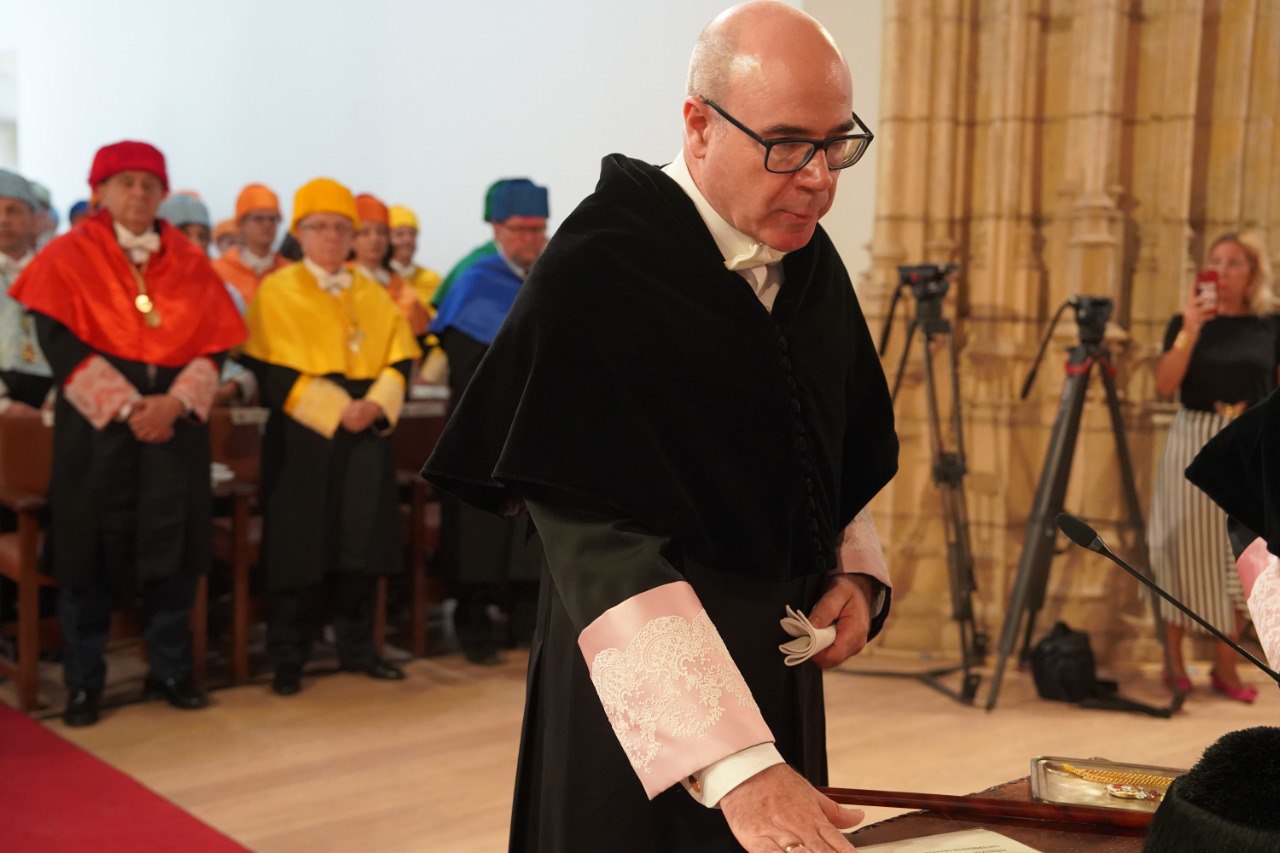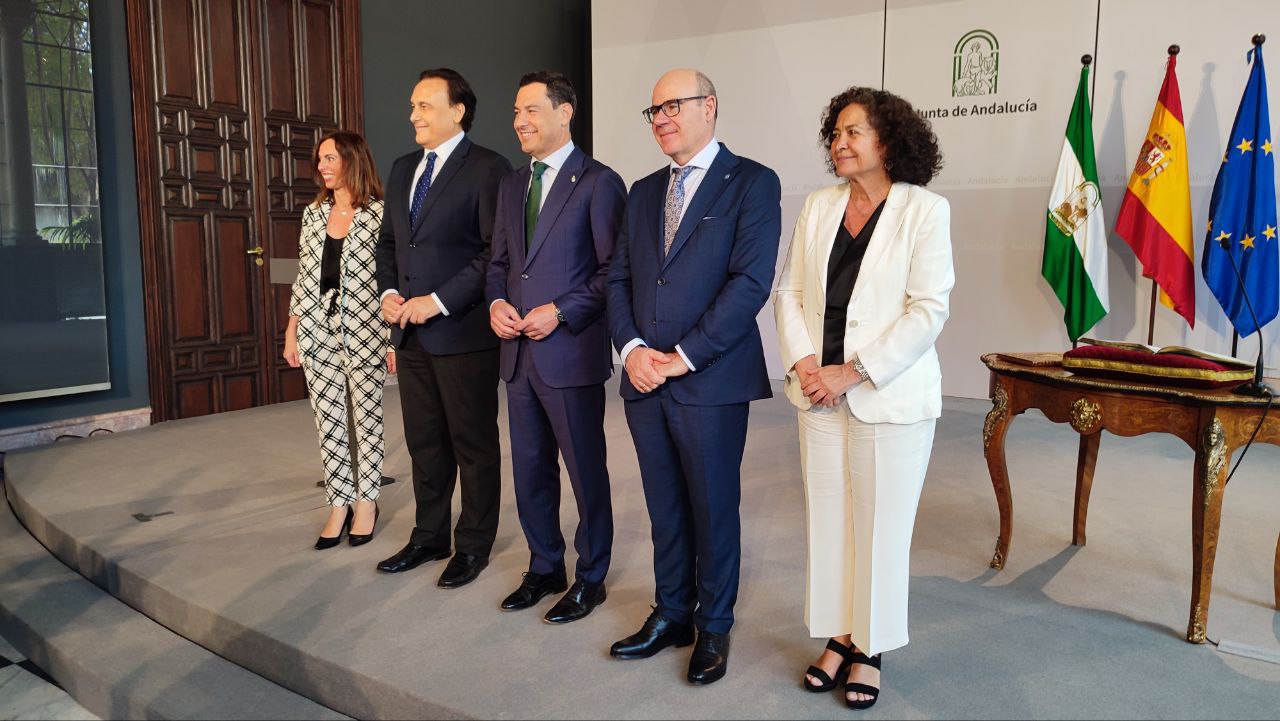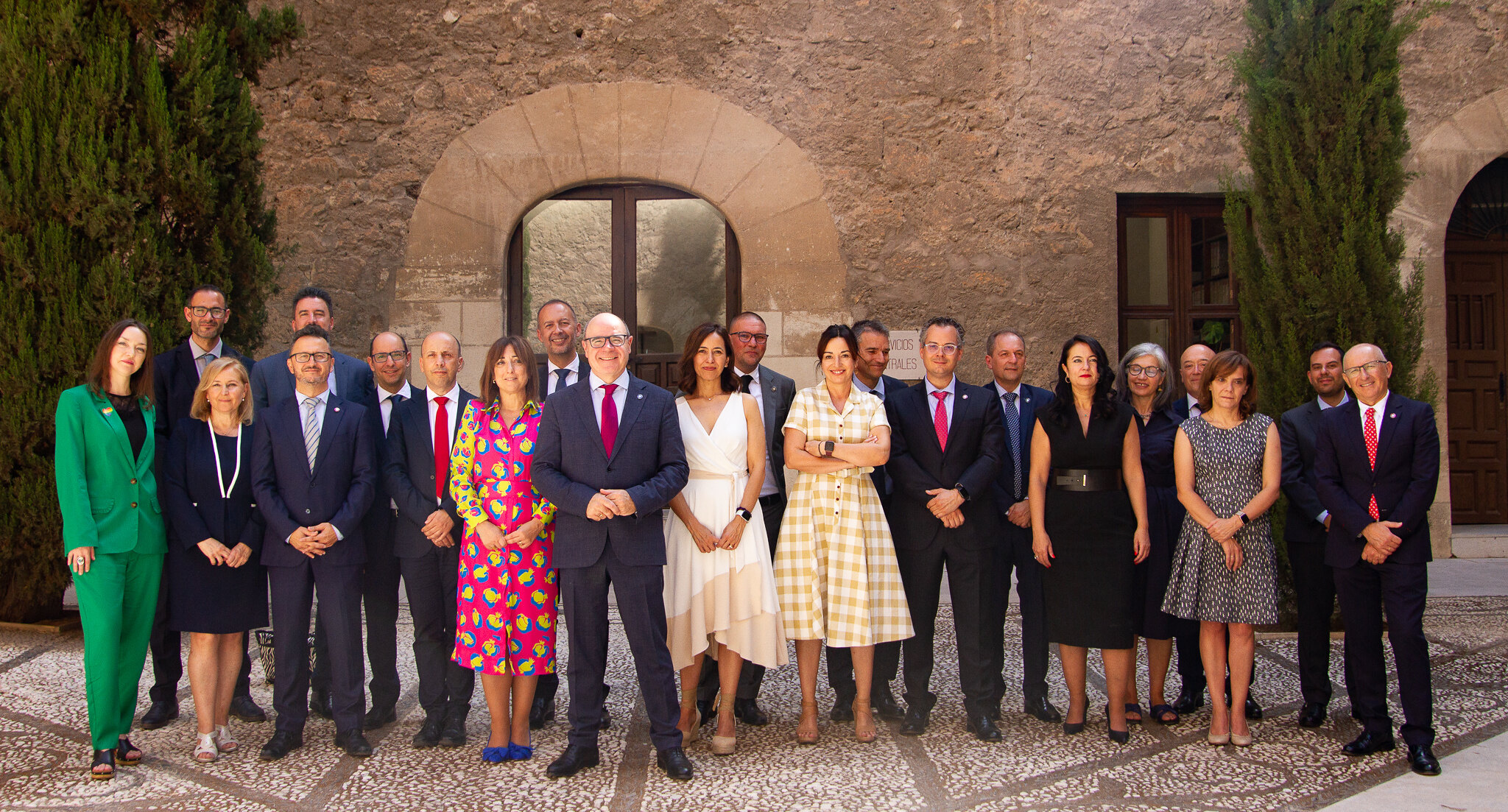
The Tordesillas Group is composed of 55 prestigious universities from Brazil, Spain and Portugal
The Rector of the University of Granada, Pilar Aranda, was unanimously elected as Chairperson of the Tordesillas Group by its General Assembly during the 8th Meeting of Rectors that took place last 20 and 21 November in Aveiro (Portugal).
Following her election, Prof. Aranda is now responsible for coordinating the group’s current activities, promoting cooperation between member universities, fostering pioneering initiatives and ensuring the sustainable financing of the network. One of the main tasks on her agenda will be to develop the new “Tordesillas Doctoral Schools” These will supplement the seven Schools that already exist in the fields of Organizational Psychology, Environmental Science and Global Changes, Nursing, Organization Engineering, Physics, Public Health and the History of Science, and Language, Culture and Society.
The “Tordesillas Doctoral Schools” have been established in order to develop academic and scientific collaboration between research teams and departments from the group’s member universities. They also facilitate teaching exchanges, training and research mobility opportunities for students, co-supervision of doctoral theses, and the implementation of joint and multiple doctoral programmes. The University of Granada is currently participating in the Doctoral Schools of Physics and Nursing.
The chairmanship period will conclude with the 9th Meeting of Rectors of the Tordesillas Group that will take place in Granada in November 2018.
8th Meeting of Rectors of the Tordesillas Group
As part of the 8th Meeting of Rectors, a series of debates were held on how to measure the social and economic impact of universities. While the difficulties related to accurately determining this impact were highlighted, a general consensus was reached concerning the fundamental importance of quantifying and demonstrating the contributions of higher education institutions to their local, regional and international socio-economic environments. This is a crucial preliminary step in facilitating the efficient dissemination and communication of the results of activities related to the social mission and the services universities provide to society. Through effective reporting on their impact, universities ensure social actors and citizens are aware of how invaluable higher education institutions are for society at large, thereby providing convincing arguments to encourage their support for academic activities that go beyond professional training and basic and applied research.
The Tordesillas Group was created as part of the 1st Meeting of Rectors of Brazilian, Portuguese and Spanish universities in June 2000. This academic network is composed of 55 universities (29 from Brazil, 18 from Spain and 8 from Portugal) with the aim of promoting collaboration between member universities in the fields of science and technology. It also emphasises scientific and educational cooperation as a key element in the role that academic institutions must perform in a world marked by profound social, scientific and technological changes.
The Tordesillas Group pursues the following key objectives:
-
To build academic, cultural, and socio-economic bridges between the member universities
-
To promote multilateral activities in education, science, technology and innovation, as well as the creation of research networks that encourage research mobility and projects with high strategic value that tackle obstacles to progress in the Iberian/Brazilian context
-
To promote educational cooperation through networks that encourage student, teaching staff, and administrative staff mobility, as well as the exchange of curricula and educational pathways
-
To adopt appropriate measures to overcome obstacles to educational cooperation, for instance, through the recognition of qualifications from member universities and the joint creation of new qualifications, given the emergence of new professions and training needs in society
-
To promote stable and effective communication between member universities by developing a technological support system which facilitates the identification of common objectives, approaches, and programmes in research and education
-
To enhance the role of universities in linking societies and companies from different countries by maintaining dynamic relationships with the business world, thereby detecting economic changes and technological developments at the international level
-
To encourage interactions between universities and different productive and services sectors in order to improve living standards, the competitiveness of companies, and social development in our communities.
For further information, please visit: http://www.grupotordesillas.net/



